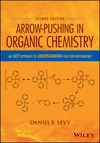The ability to manipulate the chemical composition of matter has led to new products and technologies emanating from almost every sector of industry. Of these sectors, among the most challenging and time-intensive activities is the discovery and development of new therapeutic agents. These challenges stem from:
In previous posts, I highlighted issues relevant to this question including:
Yes, I said it. I mean it and I make no apologies for the frankness of my statement. Academic institutions are not suitable engines for both drug discovery and the training of our next generation of scientists. To qualify this statement, consider that the drug discovery process requires activities including:
Put another way, where are we to generate the next generation of innovative, highly trained and knowledgeable scientists if our educational resources are diverted to commercial interests?
Organic Chemistry vs Medicinal Chemistry
During my undergraduate research activities with Professor Henry Rapoport at UC Berkeley, I found that my greatest interest was in the discovery of new medicines. Recognizing that the career opportunities I sought required an advanced degree, I began asking about which type of graduate program to pursue - organic chemistry or medicinal chemistry. The input I received overwhelmingly favored a PhD in organic chemistry. The rationale behind this bias was quite simple - the most important skill for a chemist in drug discovery is the mastery of organic chemistry.
Education in organic chemistry programs is not limited solely to reactions. The diverse set of skills, generally applicable to drug discovery (and other industries) are:
In my August 21 post, I pointed out that in order to motivate our next generation of scientists,
- our increased need for safer and more effective products
- inherently long timelines from discovery to market
- the desire of the venture community to realize rapid returns on investments.
In previous posts, I highlighted issues relevant to this question including:
- Where big pharmaceutical companies will rebuild their pipeline of new drug candidates
- Large pharmaceutical firms turning to biopharmaceutical companies to fill their discovery pipelines
- Paradigm shifts incorporating outsourced services as replacements for high cost internal capabilities
- Academic institutions must continue to provide solid educational programs and degrees in chemistry - incorporating broad based and generally useful knowledge/skills
Yes, I said it. I mean it and I make no apologies for the frankness of my statement. Academic institutions are not suitable engines for both drug discovery and the training of our next generation of scientists. To qualify this statement, consider that the drug discovery process requires activities including:
- Compound synthesis/purification/analysis
- Enzyme assays
- Cell-based assays
- Animal models of disease
- Pharmacology
- Formulations
- Metabolite ID/bioanalytical
Put another way, where are we to generate the next generation of innovative, highly trained and knowledgeable scientists if our educational resources are diverted to commercial interests?
Organic Chemistry vs Medicinal Chemistry
During my undergraduate research activities with Professor Henry Rapoport at UC Berkeley, I found that my greatest interest was in the discovery of new medicines. Recognizing that the career opportunities I sought required an advanced degree, I began asking about which type of graduate program to pursue - organic chemistry or medicinal chemistry. The input I received overwhelmingly favored a PhD in organic chemistry. The rationale behind this bias was quite simple - the most important skill for a chemist in drug discovery is the mastery of organic chemistry.
Education in organic chemistry programs is not limited solely to reactions. The diverse set of skills, generally applicable to drug discovery (and other industries) are:
- Synthetic organic chemistry technique
- Practice in hundreds of different reactions
- Exposure to many more reaction types
- Scales from mg to multigram
- Training in the logic behind synthetic pathway selection
- Training in all spectroscopic/analytic/purification techniques
In my August 21 post, I pointed out that in order to motivate our next generation of scientists,
- Industry must work to prevent chemistry, a discipline requiring intensive education/training, from evolving into a service
- Academic institutions must continue to provide solid educational programs and degrees in chemistry - incorporating broad based and generally useful knowledge/skills




